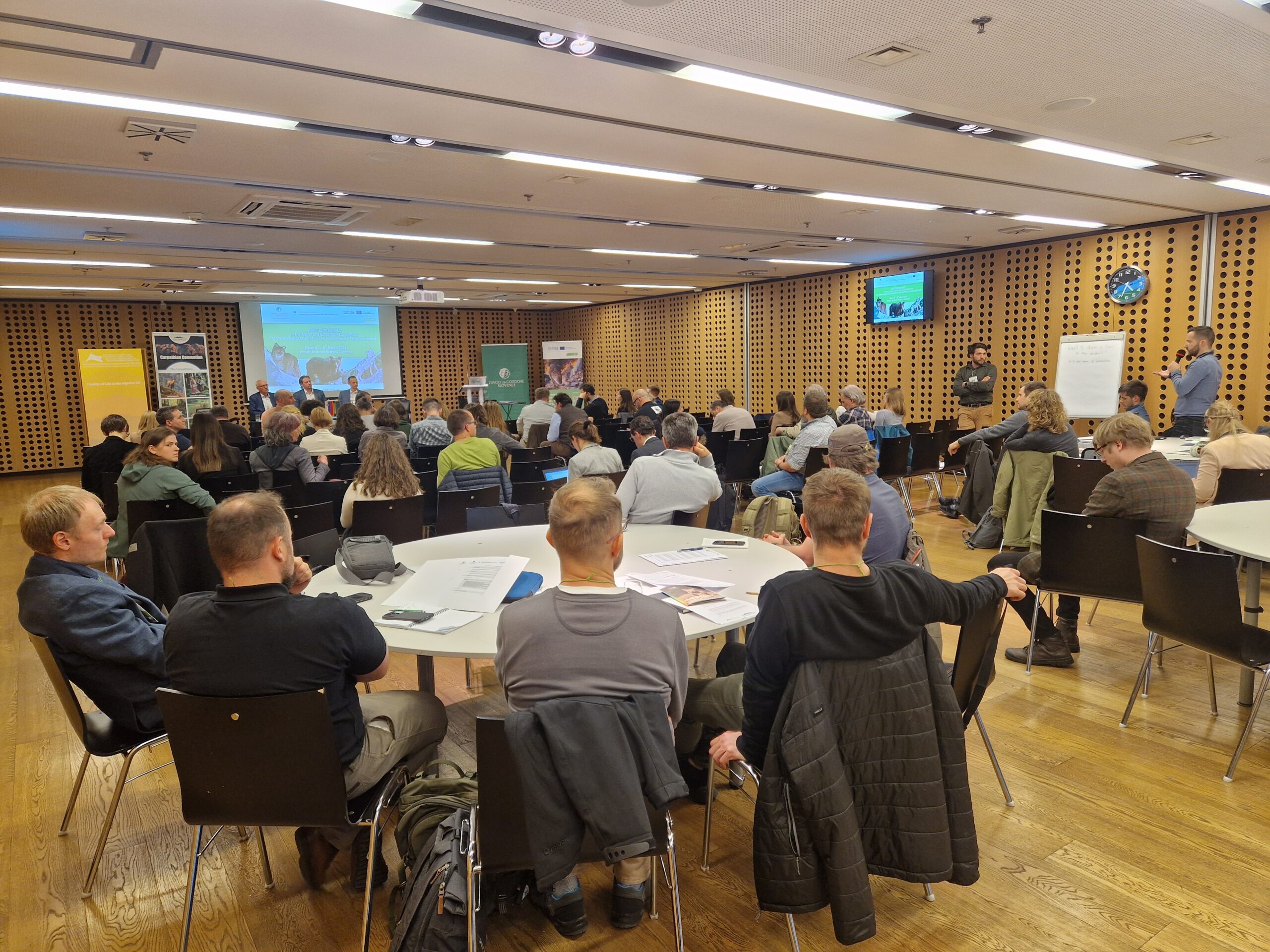The status of large carnivore populations, monitoring methods, spatial characteristics of their habitats, and the degree of interaction with humans and consequent conflicts vary between and within the countries and regions. “To this end, the conference aims to provide an overall picture of the status of large carnivore populations in the Alps and Carpathian Mountains”, explained Martin Duľa, coordinator of project LECA from Mendel University in Brno (Czech Republic). The LECA project goal is to produce guidelines on monitoring, conflict and poaching prevention of brown bear, grey wolf and Eurasian lynx. “This conference is the first event that aims to connect both the Alpine and Carpathian region with a view to share examples of good practice and discuss joint challenges”, added Eliška Rolfová, Chair of Carpathian Convention Working Group on Biodiversity, from the Ministry of the Environment of the Czech Republic.
The conservation of grey wolf, brown bear, and Eurasian lynx is subject to the same legal basis within the European Union, while policy practices in conservation management itself vary between countries. Rok Černe, Chair of Large Carnivores, Wild Ungulates and Society Working Group of the Alpine Convention from Slovenia Forest Service explains: “the conference focuses on exchanging experiences and revealing the differences in management practices at regional and national levels.” This established cooperation will contribute towards better understanding, and better conservation and management of large carnivores and associated societal challenges at the pan-European level.
